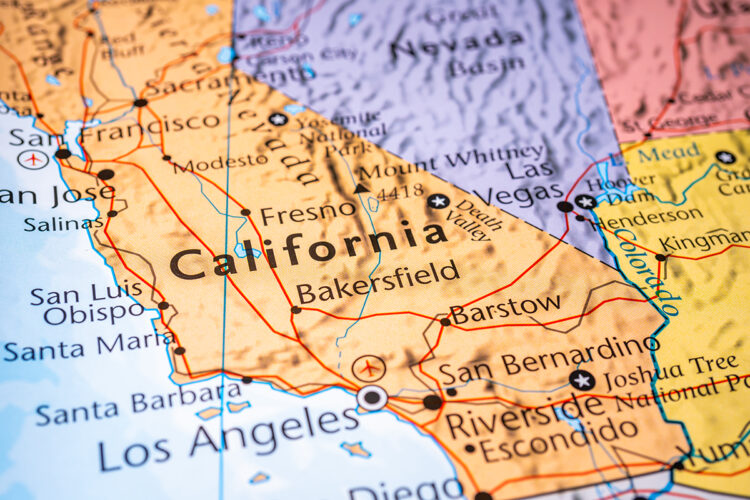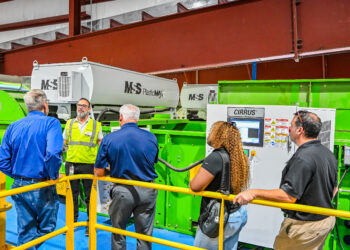California regulators have released a preliminary list of more than 4,000 companies, revealing for the first time who will need to comply with sweeping new climate disclosure laws, starting in just three months’ time.
The first climate risk reports, in the form of mandatory public filings, are due in January 2026. This new clarity also means that suppliers, service providers and partners of listed companies will face significant pressure to support their clients’ climate disclosure requirements with granular data, auditing and traceability, whether or not they are named directly in the law.
Companies in the ITAD, data security and e-scrap recovery sectors are not immune, and many of them are likely to face a difficult transition period.
The first critical milestone comes Jan. 1, when companies with more than $500 million in annual revenue will be required to release their initial climate-related financial risk reports, capturing the previous year’s data. That’s quickly followed by the June 30 deadline for Scope 1 and 2 greenhouse gas emissions disclosures, both direct and indirect emissions, subject to third-party validation.
The reporting scope expands yet again in 2027, compelling companies to begin reporting Scope 3 emissions, encompassing everything from supplier manufacturing and transportation to product use and end-of-life disposal, sealing California’s status as a trailblazer in regulatory transparency.
For IT asset disposition (ITAD) providers, recyclers and even corporate IT managers, these rules signal a profound operational shift. Adhering to Scope 3 rules means mapping upstream and downstream life cycles of products and services, covering not just supply chains but also logistics, employee commutes, and ultimately, the destination of recycled and retired electronics.
This is likely to drive a surge in demand for robust traceability, auditable chain-of-custody processes and data-driven, sustainability-centric service offerings from ITAD firms, while forcing enterprises to embed climate accountability directly into IT life cycle decisions.
The law mandates that companies use standardized disclosures, maintain third-party assurance and submit information publicly via CARB’s digital registry. It represents a shift from voluntary ESG pledges to mandatory, enforceable compliance. Both SB 253 and SB 261 cement climate transparency as central to legitimate market participation, redefining climate reporting as a regulatory requirement.
Companies that fail to comply with California’s climate disclosure laws face enforcement risks. Under SB 253, civil penalties can reach up to $500,000 per reporting year for missing, late, or inaccurate emissions disclosures. SB 261 carries fines of up to $50,000 per year for non-compliant or insufficient climate risk reports. Both statutes give regulators some discretion for “good faith” efforts, particularly in the case of Scope 3 emissions.
Implications reach beyond state borders
California’s ambitious climate disclosure laws have catalyzed what may prove to be one of the most far-reaching sustainability shifts on record for corporations. With thousands of companies, spanning financial, healthcare, energy, technology and manufacturing giants, now listed by the California Air Resources Board (CARB), firms seeking access to California’s immense marketplace must play by the state’s rigorous environmental rules, regardless of headquarter location or corporate philosophy.
Only about 40% of covered companies are based in California, leaving a majority of S&P 500 constituents and other Fortune 500 powerhouses obligated by their mere presence in the California economy.
Major financial institutions such as JPMorgan Chase, Bank of America, Wells Fargo, Citigroup, Goldman Sachs, and Morgan Stanley are among the high-profile names. The list also ropes in healthcare leaders such as UnitedHealth Group, CVS Health, McKesson, Cigna, Cardinal Health, and AmerisourceBergen (Cencora), each wielding enormous influence in their sectors and providing services that touch millions of Americans.
Many firms on the list are incorporated in Delaware, headquartered in Illinois, New Jersey or Texas, or based abroad, yet compliance is unavoidable if they conduct business in California, which remains the world’s fourth-largest economy and a bellwether for regulatory standards. Global companies doing business in California also must be ready for public scrutiny of their entire value chain’s environmental risks and impacts.
In effect, California’s climate disclosure mandate raises the bar for everyone, recalibrating US (and by extension, global) sustainability governance, from the statehouse up. Companies of all stripes, from small market players to international conglomerates, are racing to align data systems, supplier relationships and risk management frameworks to preserve their future in the world’s fourth-largest economy.






























